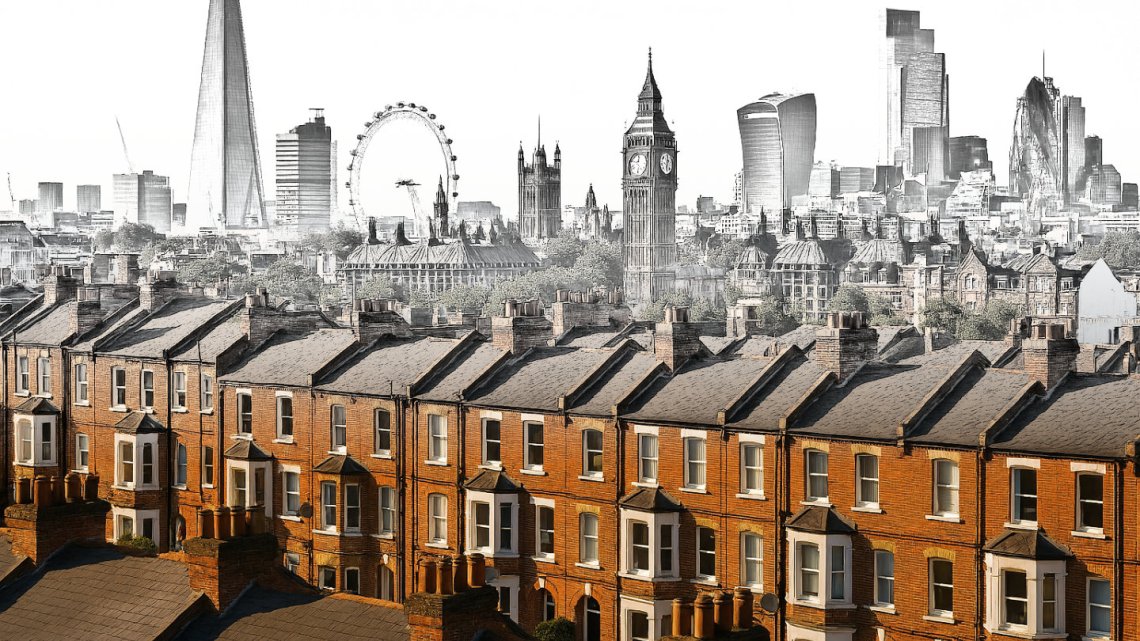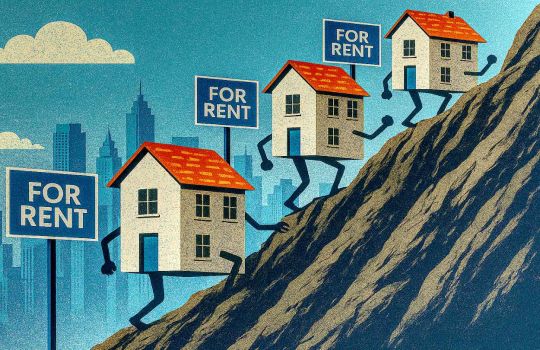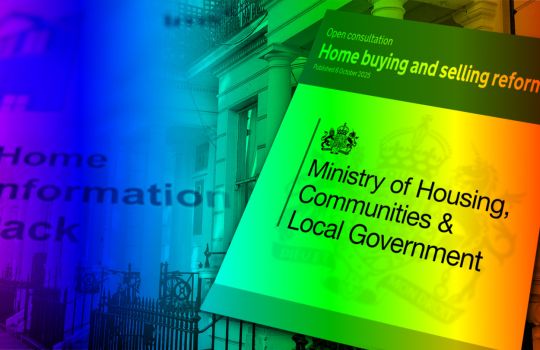London Waiting?

The latest data from Rightmove’s September House Price Index paints a mixed picture of the UK property market. While national asking prices have edged up by 0.4% (+£1,517) this month, there’s still a slight annual decline of 0.1% in average new seller asking prices. Beneath these headline figures, regional disparities are becoming increasingly evident - particularly in the south of England, where London is leading the downturn, contributing to the overall annual price drop across Great Britain.
Economic uncertainty discouraging southern movers?
Despite a relatively stable national market - sales activity is up 4% compared to this time last year - the south of England is showing signs of strain. Properties in the region are taking, on average, five days longer to find a buyer than elsewhere in the UK. Additionally, the number of homes for sale in the south has surged by 9% year-on-year, far outpacing the modest 2% increase seen in other regions. This points to growing competition among sellers and mounting affordability pressures for buyers.
In contrast, other parts of Great Britain are faring better. Outside London, agreed sales have risen by 5% year-on-year, suggesting that regional markets are not experiencing the same level of stagnation. However, the south’s challenges are being exacerbated by economic uncertainty, with potential movers perhaps awaiting clarity on the government’s rumoured property tax reforms.
The London effect
London’s market dynamics are particularly striking. Rightmove’s data reveals that 59% of property sales in the capital this year have been for homes priced over £500,000 - compared to just 22% outside London. This makes the city especially vulnerable to any changes in property taxation. Should the government proceed with its speculated overhaul, the high-end segment of the market could be disproportionately affected.
Despite this, there are positive signs. Rightmove’s property analyst, Colleen Babcock, notes that affordability has improved slightly. The average two-year fixed mortgage rate has dropped from 5.03% to 4.52% since August 2024, easing some of the financial pressure on buyers. This, combined with more competitive pricing from sellers, has led to a stronger-than-expected rise in sales activity compared to the same period last year.
| Feature - scroll to continue with content... |
| continue reading article... |
Property tax rumours
One of the most significant factors looming over the market is the potential reform of property taxes, expected to be addressed in the Autumn Budget on November 26. Although still speculative, these proposed changes are already causing unease - particularly in London and the south, where high-value properties dominate.
The speculated reforms could involve replacing the current stamp duty system with a new property tax, which would likely hit higher-priced homes hardest. For buyers and sellers in this bracket, the possibility of increased taxation may prompt a reassessment of plans, potentially delaying transactions until more clarity emerges.
Colleen Babcock (Rightmove) commented on the growing caution:
“While our real-time data hasn’t yet shown a major shift in activity, we are seeing increased hesitancy - especially among movers who could be adversely affected by the proposed changes. The higher price brackets in London and the south are already underperforming, and these areas could face further pressure if the new tax system is introduced.”
Taking a balanced view
Despite the challenges, there are reasons for cautious optimism. The monthly rise in asking prices and the continued increase in sales activity suggest that many buyers are still finding opportunities - particularly as mortgage rates ease. Moreover, the rise in available properties across the south could offer buyers more choice, potentially leading to more balanced pricing in the months ahead.
As we approach the Autumn Budget, the London property market - especially at the higher end - may experience further volatility. Sellers in the south will need to remain competitive to attract buyers, and any clarity on the rumoured tax changes could either stabilise or further unsettle the market.
With affordability improving and inventory rising, the coming months may present opportunities for buyers. However, navigating the uncertainty around potential tax reforms will be key. How the market responds could shape the outlook for London and the south well into 2026.
This article is for informational purposes. Always seek professional advice before making any property and/or financial decisions.














